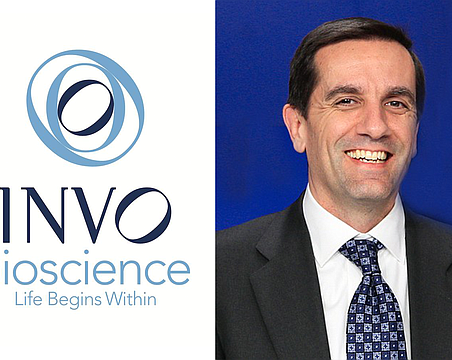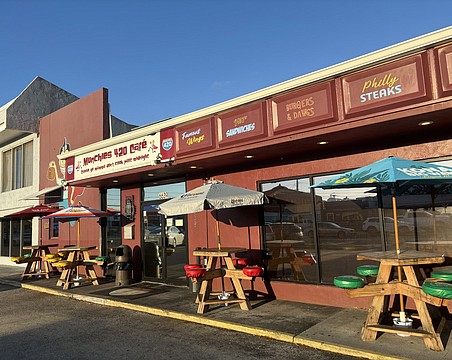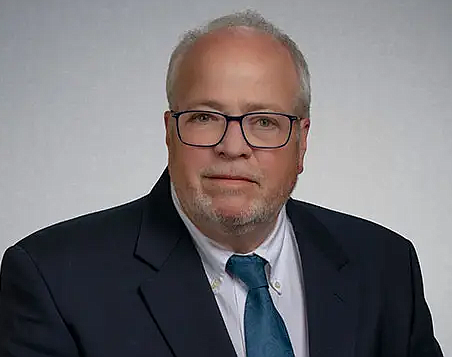'A Class Act'
By Janet Leiser
Senior Editor
Bennie Lazzara Jr. reaches deep into his memory, trying to decide which case in 35-plus years is the most memorable. It's impossible to choose.
Where would he start?
He represented Guy W. Spicola, then Hillsbor-ough's chief judge, during a courthouse scandal. He won an acquittal for a North Florida sheriff, who was accused of lying to grand jurors. There was Richard Zane Britt who was charged with murder, but jurors ruled it was self-defense.
And there were other judges and lawyers - even top-notch attorney Barry Cohen - who called Lazzara for help. Most people, though, remember the 1992 Pizza Hut slayings. Richard Miller, a father of three young children, was jailed for nearly a year on charges he gunned down his wife and her boss at the Brandon Pizza Hut. With Lazzara as his lawyer, he was acquitted.
There's no doubt that win added to Lazzara's reputation as one of Tampa's legendary criminal defense lawyers. It's part of the reason why Lyann Goudie, a top lawyer herself, joked recently she'd give her right arm to work with Lazzara.
But Lazzara's accolades don't stop with criminal law. In the eight years since he joined Tampa's Wilkes & McHugh PA, pioneers in nursing home litigation, he has amassed more than $150 million in verdicts.
His largest nursing home verdict: $78 million in 2001 for the wrongful death of Margaretha Sauer. The verdict was later reduced to $21 million by the Arkansas Supreme Court. The firm collected that amount plus interest.
That win helped catapult Wilkes & McHugh, founded in 1985, onto the National Law Journal's 2004 list of the top 20 national plaintiff firms.
Lazzara, 61, reluctantly talked about his wins, his reputation from the firm's headquarters overlooking Kennedy Boulevard and Dale Mabry Highway. An introvert, he politely declined to describe himself, except to say he's not good at idle conversations. Never has been.
Sicilian connection
The oldest of three children, Lazzara was born in Tampa in 1944. His father, Bennie Sr., who ran a produce business, was the son of Sicilian immigrants who moved to Ybor City in the late 1800s in search of a better life. With hard work and perseverance, they found it.
Physicians and lawyers make up Lazzara's extended family tree. Bennie Lazzara Jr.'s maternal uncle, I.C. Spoto, was the first Italian judge in Hillsborough County. His brother, Ralph, is a renowned cardiologist; his sister Rosalie's husband is a physician and researcher at the University of Alabama at Birmingham. Numerous other cousins are doctors and lawyers.
Lazzara recalls how hard his parents, grandfather and uncles worked to make a good life for the family. He was taught, he says, to always put his "best foot forward."
At Seminole Heights High School, Lazzara was president of the student class and the student council. At the University of Florida, he graduated with honors.
In 1969, he joined Joe Spicola to work as a Hillsborough prosecutor. "At 25, I was prosecuting capital murder cases," he says. "That was a great experience."
In 1974, he became a part-time public defender. After only a few months, he and Tony Gonzalez started their own criminal defense firm. "It was unusual at the time, especially for two young guys," he says. Gonzalez is now chairman of the Bank of St. Petersburg.
In 1980, after six years, Lazzara went out on his own.
"I was doing one high-profile murder case after the next," he says. "They were interesting, good cases."
After 17 years of making headlines as a criminal defense lawyer, it was time for change. In 1997, he joined Wilkes & McHugh. He and Jim Wilkes, one of the firm's founders, had been friends for years. Their sons were childhood friends.
"I wanted to have a chance to immerse myself in the civil practice and see what came out of that," he says.
He wanted a new challenge.
Life as a plaintiff's lawyer
There really isn't a typical work week for Lazzara, a lanky well-dressed man who appears at ease in silk suits. Some weeks he travels around the country, appearing in court in Mississippi, Louisiana, Tennessee or even California. The firm has four corporate planes and offices in those states, plus Pennsylvania, Arizona and Virginia.
"If I'm lucky I can sleep in my own bed at night," Lazzara says. "Get up in the morning and get to court on time and then fly back home."
He maintains about 20 or so cases at a time. Otherwise, he helps on other lawsuits, as needed.
When he's preparing for a trial, there's little time for anything else in the days leading up to it, he says. He lives and breathes the case for days, often going without food.
"I can't get over that anxiety," he says. "It's not as bad as it used to be. But until the trial starts I have butterflies."
Still, he says, "I'm much more comfortable with my nerves than I used to be."
At a recent hearing on his motion to seek punitive hearings in a Hillsborough nursing home case, he showed no emotion as defense counsel attacked the validity of statements made by his experts or "hired guns" as the lawyer called them.
The defense lawyer had delivered a memo the previous day to the judge; his office had forgotten to give a copy to Lazzara. The judge offered to stop the proceedings. No, Lazzara says, he'd move forward without it.
After a 30-minute hearing, the judge agreed there was enough evidence for the jury to consider punitive damages at trial.
With no fuss, no theatrics, Lazzara won the motion.
Most cases, he says, never get to trial. They settle.
The firm has Lazzara for those that don't.
The 'X' factor
Goudie, who joined Wilkes & McHugh earlier this month, says Lazzara has a quality that sets him apart as a trial lawyer.
"It's the 'It' factor or the 'X' factor," she says. "It's something that's almost indescribable."
Many lawyers have a presence in the courtroom and many are skilled, intuitive, she says. But not all have the ability to connect with a jury. "Bennie makes them want to rule for him," she says.
Nick Cox, now a professor at Stetson University law school, went up against Lazzara at least twice as a Hillsborough prosecutor. They went head-to-head in the trial of Charles Trice, a former state trooper charged with killing his estranged wife.
Cox won a first-degree murder conviction despite Trice's self-defense claim. He says it was a tough fight with Lazzara as Trice's lawyer. "He's one very, very capable lawyer," Cox says.
But what impressed Cox the most was that Lazzara never tried to misrepresent the truth to the judge. "He's a class act," Cox says.
The morning after Trice's conviction, Cox received a voice mail from Lazzara who'd called to say it was a pleasure to work with him.
"That's the kind of guy he is," Cox says.
Cohen, who has his own legendary reputation in the legal community, says he considers Lazzara a great human being and lawyer. "We've always had a mutual respect for each other," he says.
They've been on opposite sides more than once. Lazzara represented Mark Urbanski, the son of former Tampa Tribune president James Urbanski. The younger Urbanski was charged with raping a woman that Cohen represented.
"But for Bennie Lazzara, Mr. Urbanski, in my opinion, would have had to face much more serious consequences," Cohen says.
Cohen is also one of the lawyers that judges turn to when they need help.
"One judge told me," Cohen says, "he was going to hire Bennie because he was such a nice guy and he thought he could get good results without going to war. But he said if he had to go to war, he'd call me. I wasn't sure if that was a compliment or not."
When Cohen faced troubles of his own with the Florida Bar, he hired Lazzara.
Cohen paid a confidential informant, who has since became a lawyer, to befriend a young woman who'd accused a prosecutor of rape, he says. The woman told the informant, Mark Ware, she'd had consensual sex with the prosecutor, Cohen says.
The charge against the prosecutor was dropped, but the bar went after Cohen for misconduct.
"Bennie represented me," Cohen says. "He argued since when is there a law that only a prosecutor can hire a confidential informant? The lawyer for the bar scratched his head and said that's right."
Not everyone is a fan
Nursing home lawyers and executives have called Wilkes & McHugh the No. 1 enemy in Florida. More than a few have aimed insults at Lazzara.
In April 2003, Canadian reporter Paul McKay wrote about Ontario's nursing home crisis, including an article on how some of that country's corporate players also operated homes in the United States. The reporter described Lazzara as a "sleek, silk-shirted" litigator.
"His courtroom adversaries, nursing home lobbyists, and some state politicians have called Mr. Lazzara a parasite. A pirate. A hired hit man. A Rolex Robin Hood. Even an anti-Christ," McKay wrote for the Ottawa Citizen. "Yet others have praised him as an 11th-hour angel - albeit with one eye on lucrative contingency fees - who took on a rapacious, unregulated business and began cleaning it up."
McKay questioned Lazzara's contention he sought social justice through his work. The reporter cited the 40% fee the firm typically collects in successful cases. He then cited statistics showing one in every five Florida nursing homes filed bankruptcy protection in 2001; others are "reportedly sinking into insolvency."
"Some moved to places where it appeared regulations were weaker and lawyers like Bennie Lazzara didn't dine on their deep pockets," McKay wrote. "That didn't last long. Mr. Lazzara and his law partners were soon literally on their case in Arkansas, Alabama, Georgia, Texas, Tennessee and California. Wilkes and McHugh branch offices spread across the Deep South."
Lazzara shrugs off the criticism. He has heard it all.
"I've been doing this for five decades," he says. "I hope to make it six."
He concedes the job is getting tougher.
States, including Florida, have made it more difficult to sue nursing homes, and the companies that run the nursing homes are trying to hide assets, Lazzara says.
"A lot of companies are claiming they left Florida," he says. "We're trying to show they didn't really leave. They just restructured. They're hiding their assets. They're making it a lot more difficult for us to identify who the real operators are and then find the assets."
That's OK, he says, adding: "I'm not looking for anything easy. I've always risen to the occasion of a challenge. I like the adversarial part of this. I'd like to continue doing what I'm doing for as long as I'm able to do it.
"I'm going to keep working as long as the Rolling Stones keep touring," he says with a smile.
Bennie Lazzara Jr.
Birth date: Jan. 21, 1944
Personal: Married 33 years to Joyce, an accomplished artist, 33 years, with two sons, Cayman, 32, an artist, and Croix, 29, a Hollywood actor.
Birthplace: Tampa
Retreat: Anna Maria beach house
Music: He has more than 8,000 songs on his iPod, from Bob Dillon to Bob Marley to Van Morrison, plus original blues and jazz recordings from his travels to the Delta.
Last book read: "The shadow of the Wind," by Carlos Ruiz Zafon.
Favorite sport: Baseball - Tampa Bay Devil Rays. "I have to root for the Rays, Lou (Piniella) is a good friend." But he was raised as a New York Yankees fan.





